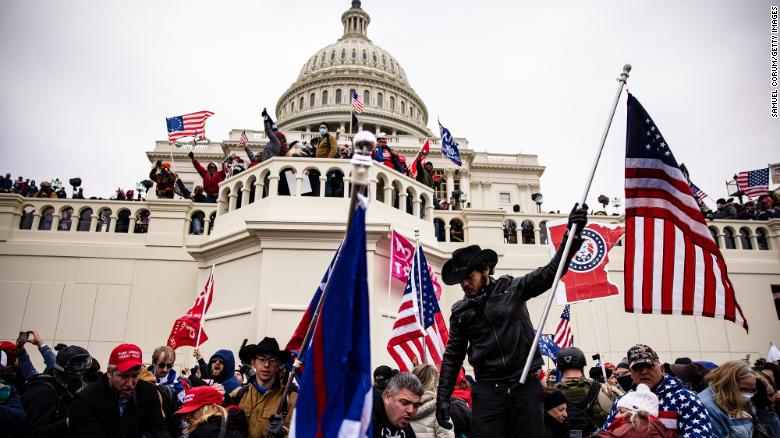Trumpism and the Discourse of Impeachment

The vast majority of Republican Senators are about to demonstrate, yet again, that they are authoritarians, cowards, or both. So I think it’s a good time to share Mark Graber’s reminder that the grounds for Trump’s conviction do not depend on criminal incitement.
The extent to which impeachment risks being overlegalized can be assessed by the verbs people use when describing former President Trump’s behavior and the standards for impeachment. The evidence is clear that President Trump caused, encouraged, provoked, and supported the insurrection of January 6. “Inspired,” “emboldened,” and “facilitated” also come to mind. Wordsmith’s could not doubt come up with at least ten other verbs that no one questions accurate capture Trump’s responsibility for January 6. Putting aside technical questions of American constitutional law, any sane person would want to impeach a president who, despite being the chief law enforcement official of the United States, caused, encouraged, provoked or supported an insurrection. We would fire a police officer who while on the job caused, encouraged, provoked and supported an insurrection. Same for the president.
“Incitement” is, at least in constitutional law, a technical legal term that is designed to protect private speakers who have no law enforcement responsibilities. The soapbox orator is free to say “something ought to be done to prevent Congress from [whatever] in part because the soapbox orator is not constitutionally charged with protecting Congress when Congress does whatever. Proving incitement under the First Amendment is and ought to be very, very difficult. Whether the House managers who are demonstrating beyond a reasonable doubt causing, encouraging, provoking, and supporting will prove inciting as inciting is defined in the First Amendment is not entirely clear, though they are doing a good job. But no sane regime would demand incitement when causing, encouraging, providing and supporting an insurrection are clear
Republicans have routinely sought to make impeachment a matter of criminal law. Among other things, they have declared the proceedings illegitimate for failing to meet normal standards of due process, as well as that Trump’s months-long assault on the democratic process – which culminated in violent insurrection – is protected speech and therefore cannot serve as a basis for impeachment.
The Trump administration saw an ongoing subversion of legal-rational principles in favor of neo-patrimonial governance. The former emphasizes the autonomy of the state apparatus from the personal interests of the political leadership. In the latter, the state is reduced to an extension of the personal interests of the president. In many ways, this is the essence of Trumpism: the erasure of the distinction between the office and the man occupying it.
Hence, my initial reaction to what Graber calls the “overlegalization” of impeachment: that there is something ironic about how the GOP has facilitated the breakdown of legal-rational governance by appealing to rule-of-law principles that aim to protect citizens from the arbitrary exercise of state power.
On second thought, though, I’m less sure. The misapplication at the heart of GOP claims is, weirdly enough, a logical extension of Trumpism. It reflects the collapse of the distinction between the person and the office, and the reimagining of the Republic (from “res publica” – “the public thing”) as Trump’s personal patrimony. It’s not surprising, then, how much the arguments for impeachment rest on appeals to small-r republican principles, and how little the same is true of the arguments against.
Note: this post has been edited for clarity and grammar since its initial publication.


